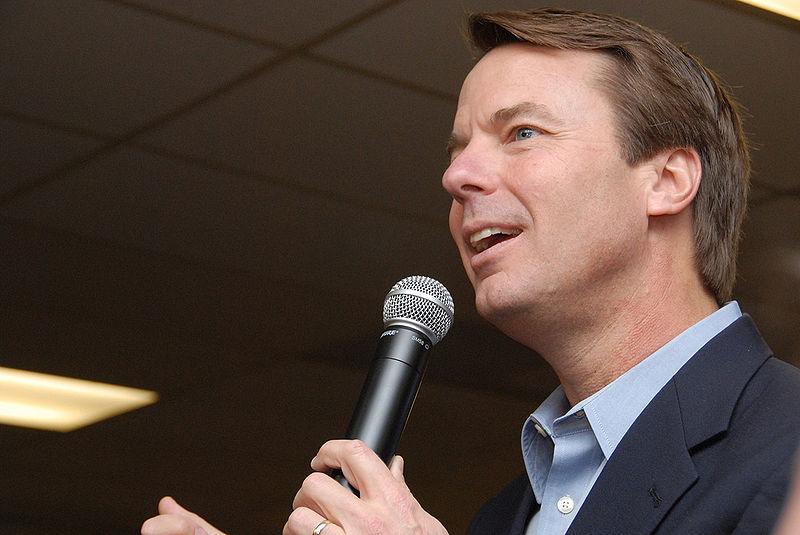John Edwards begins trial over donations that helped hush up his affair
John Edwards, pictured campaigning in Iowa in 2008, faces charges of misusing campaign funds to cover up an affair he had while running for office. (Photo courtesy of John Edwards 2008 on Flickr.)
Former Democratic presidential candidate John Edwards went on trial Monday, accused of campaign finance violations.
The case against him has ramifications far beyond the saga of his adulterous affair with filmmaker Rielle Hunter during the 2008 White House campaign. Edwards is facing six criminal charges related to nearly $1 million dollars in secret payments from two wealthy supporters.
Edwards’ lawyers say the payments were gifts from friends intended to keep Elizabeth Edwards, the candidate’s wife, from finding out about Edwards’ mistress, Hunter, and the baby he fathered with her. Lawyers from the Justice Department’s Public Integrity Section argue that Edwards masterminded the financial arrangement with campaign donations that were unreported and excessive.
Jonathan Turley, George Washington University law professor, thinks the case is driven more by political motivations than legal concerns.
“It’s an important legal case, once you clear away the headline-grabbing aspects of it,” he said. “When you drill down a bit, there’s an important legal issue: Here we have a wealthy donor, named Rachel “Bunny” Melon, and another close friend, Fred Baron, who gave money to help Ms. Hunter when she was carrying the child of Mr. Edwards.”
Turley argued that the money certainly helped Edwards’ campaign, in the sense that it kept the scandal from hitting the media until long after the campaign was over. The government says the money is a campaign contribution and Edwards’ use of it was an impermissible use of campaign funds under federal campaign finance laws.
The defense says Edwards never even knew about the money, that it was solicited by a third party, a former aide who once claimed to be the father of the child.
“So, what you have then, is the government saying even if a third party is giving money to another third party, if it benefits the candidate it can be a campaign contribution,” Turley explained. “That’s the basis of four counts in this complaint.”
There’s also a charge for conspiracy and another charge for making false statements. Those charges are fairly typical.
But the four charges relating to third party campaign contributions are raising eyebrows among attorneys, Turley said.
“It would expand, quite significantly, what is considered a campaign contribution,” he explained. “It would throw into question when a candidate receives a free gym membership or other types of benefits from third parties.”
Part of the trouble in this particular case is that Edwards has a very real motivation to solicit the money, outside of his campaign: the desire to keep his very sick wife from learning of his affair. So, to determine whether his motivations was to keep it quiet merely to protect his marriage rather than for his campaign, will prove a challenge — and one that the court will have to decide.
We want to hear your feedback so we can keep improving our website, theworld.org. Please fill out this quick survey and let us know your thoughts (your answers will be anonymous). Thanks for your time!
